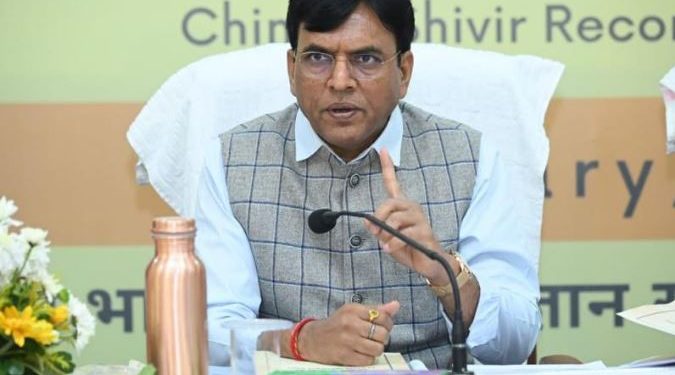Bhubaneswar: Union Health Minister Mansukh Mandaviya Sunday stressed on providing superior quality of clinical care, the highest standards of medical education and cutting-edge research at all AIIMS for them to transform into institutes of global excellence.
Addressing the sixth meeting of the Central Institute Body (CIB) of all new AIIMS in Bhubaneswar, he asked representatives of all AIIMS to learn from other institutes of national importance like the IITs and IIMs.
CIB is the highest decision-making body of all AIIMS for matters related to finance, infrastructure, vacancy, recruitment, enforcement of policies, challenges and procurement. The agenda of Sunday’s meet was to review compliance with decisions taken in earlier CIB meetings.
“This CIB is not only for review of the compliance of earlier decisions but is also a ‘Chintan Shivir’ for pooling in insights, fresh ideas, innovative thoughts and suggestions based on rich experience and expertise of all participants,” Mandaviya said.
He said all AIIMS are pivotal national institutes of tertiary care and the vision is to make them institutes of global excellence. This can only happen with superior quality, clinical care, the highest standards of medical education and cutting-edge research, the Union minister said.
Highlighting the need for creating metadata for artificial intelligence and a professional work culture that can provide superior outcomes, Mandaviya encouraged all AIIMS directors to create innovative models of functioning and present them in the next CIB meeting.
He also urged all the officials to steadfastly work towards making AIIMS able to compete with the best in the world, an official statement said.
“We have to collectively set a new benchmark in India’s healthcare system,” the minister said.
The issues discussed in the meeting included a follow-up of earlier Chintan Shivir recommendations and functioning of all new AIIMS, an overview of new AIIMS under PMSSY, a sustainable financial model, enhancing patient satisfaction and use of ICT as enabler, management and governance paradigms and managing human resources.
PTI






































